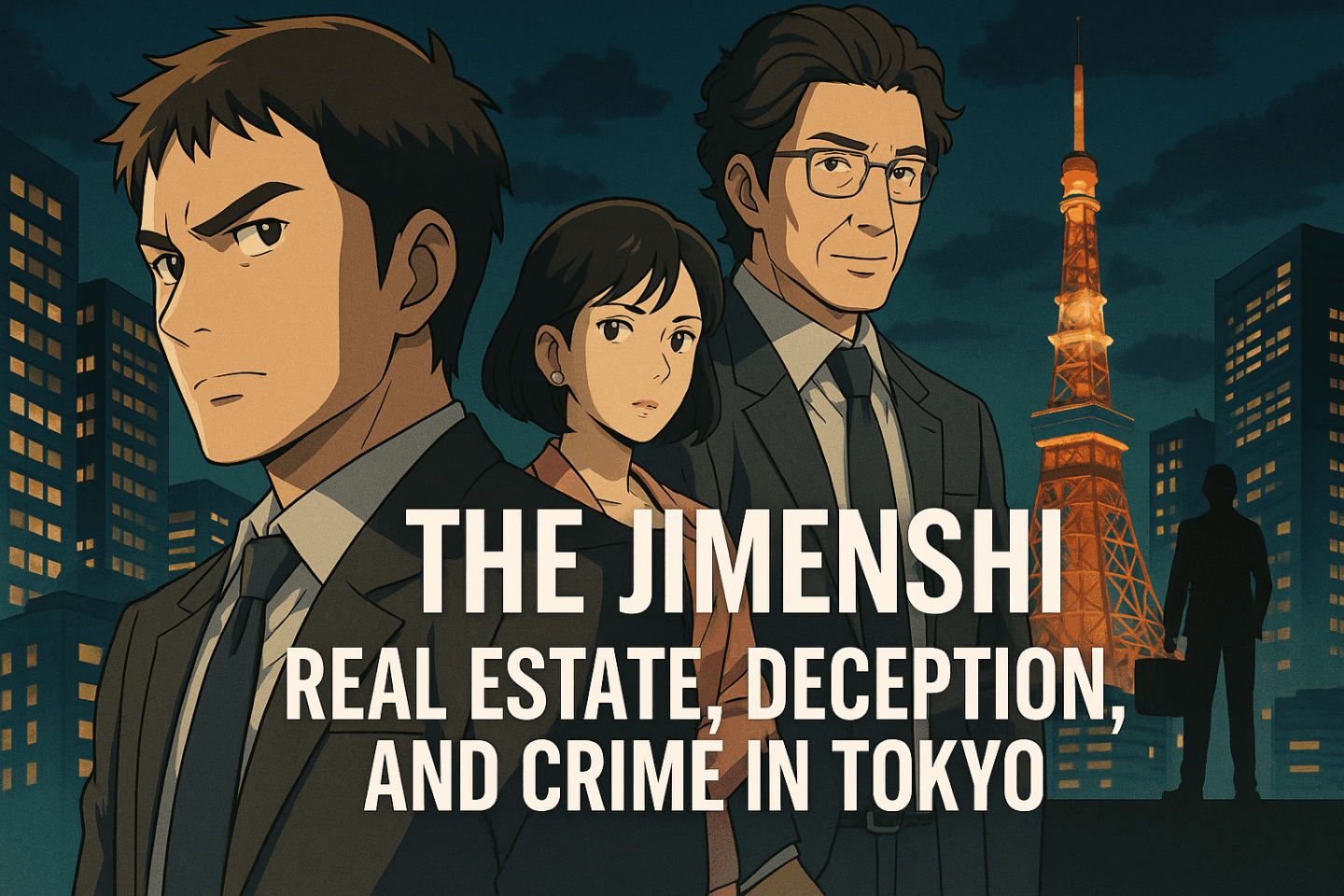🧩 The Plot
Tokyo’s real estate is booming again—but behind the scenes, a shadowy group is using fake identities and legal loopholes to pull off the ultimate con. The Jimenshi Con follows Takumi Tsujimoto (Go Ayano), a skilled negotiator, as he joins a criminal syndicate led by the enigmatic Harrison Yamanaka (Etsushi Toyokawa). Together with a forger, a fixer, and a crooked lawyer, they plot a massive scam worth over 10 billion yen. But as law enforcement closes in and secrets from the past surface, the line between deception and survival begins to blur.
Based on a true crime case in Japan, this Netflix series dives deep into how modern white-collar crime works—and how easy it is to get caught in its web.
🎵 Theme Song
There is no official theme song in the conventional sense, but the minimalist and tense score by director Hitoshi One keeps viewers on edge. Every silence feels intentional—heightening the suspense and amplifying every glance and lie.
🎶 Insert Song
Though lacking a traditional pop insert, the drama uses ambient tension and sound design to reflect the clinical precision of the jimenshi (land scam artists). It draws comparisons to the unsettling tones used in Breaking Bad and Narcos.
❤️ Why Foreign Viewers Love The Jimenshi Con
- 🌐 Based on a real-life corporate crime scandal that shocked Japan
- 🎭 Brilliant performances by Go Ayano, Etsushi Toyokawa, and Pierre Taki
- 🧠 Intellectual satisfaction in watching an intricately crafted heist unfold
- 🔍 Provides cultural insights into Japanese real estate and bureaucracy
The drama’s psychological tension and moral ambiguity resonate globally—especially in an age where trust in institutions is eroding.
🗾 Cultural Keywords
- Jimenshi (地面師): Unique to Japan, this term refers to criminal groups who sell property they don’t own using forged documents and impersonators.
- Why is this even possible in Japan?
Japan’s high-trust society assumes people are who they claim to be. That’s why identity fraud, when it occurs, can be extremely damaging—because the system is not built to expect it.
📍 Real-Life Locations
The show is inspired by the infamous 2017 “Sekisui House” fraud in Shinagawa, Tokyo—where a fake owner sold land for 5.5 billion yen. Urban Tokyo settings, especially affluent residential areas and bureaucratic offices, serve as cold and calculated backdrops for the crime.
📺 Where to Watch
▶️ Streaming now on Netflix (Worldwide)
▶️ The original novel by Ko Shinjo is available from Shueisha Publishing
▶️ Listen to the dramatic background music: ▶️ YouTube
❓ FAQ about The Jimenshi
Is this based on a true story?
Yes. It draws from the real 2017 Sekisui House scam involving forged identities and a 5.5 billion yen land deal.
What does “Jimenshi” mean?
It literally means “land master” but colloquially refers to fraudsters who fake real estate ownership.
Is it just about fraud?
No—it explores psychological manipulation, ambition, regret, and the fragility of trust.
Why is Pierre Taki’s line “Mou ee desho” famous?
The phrase “もうええでしょう” (“That’s enough now”) became a meme and even made Japan’s 2024 buzzword list.
【PR】




